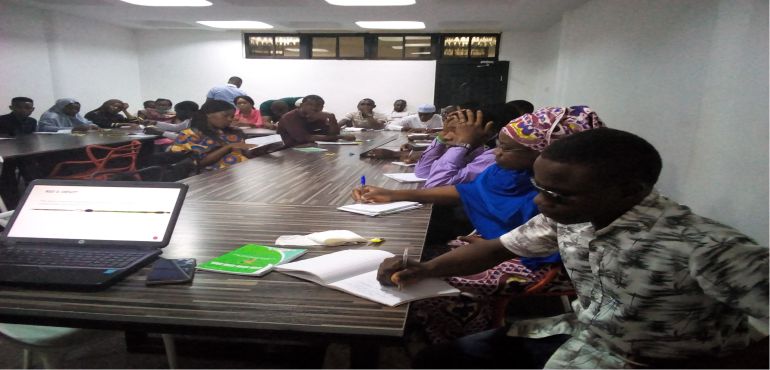- EMAIL: acco@africacore.org
Articles
Collaborative Solutions for #EndBadGovernance Protests: A Path to Peace and Reform in Nigeria- Home
- Collaborative Solutions for #EndBadGovernance Protests: A Path to Peace and Reform in Nigeria

Collaborative Solutions for #EndBadGovernance Protests: A Path to Peace and Reform in Nigeria
- 06 August 2024
- Casey 'Gbenga Adeleye
- Abuja, Nigeria
As a concerned citizen observing the #EndBadGovernance protests in Nigeria, it's clear that the situation is critical and requires a multi-faceted approach to address the root causes and mitigate the negative consequences such as looting, deaths, and hardships. Here are some potential solutions and the roles various stakeholders can play:
Solutions and Recommendations
Open and Transparent Dialogue:
Government and Protest Leaders: Establish an open dialogue to discuss the protesters' grievances and demands. This should be facilitated by neutral mediators to ensure fairness and transparency.
Regular Public Updates: The government should provide regular updates on the progress of these discussions to build trust and show commitment to addressing issues.
Immediate Relief and Security Measures: Increased Security: Deploy security forces to protect businesses and public infrastructure while ensuring they operate within the bounds of human rights and do not exacerbate tensions.
Emergency Aid: Provide immediate relief to those affected by looting and violence, including food, medical aid, and financial support.
Long-Term Governance Reforms:
Anti-Corruption Measures: Implement robust anti-corruption policies and ensure accountability for public officials.
Good Governance Practices: Promote transparency, accountability, and inclusivity in governance at all levels. Establish mechanisms for citizens to report corruption and mismanagement.
Roles of Stakeholders
Government
Leadership and Accountability: The government must show strong leadership and a commitment to addressing the root causes of the protests, such as corruption, poor governance, and lack of economic opportunities.
Law and Order: Ensure the protection of citizens' rights while maintaining law and order. Avoid excessive use of force against protesters.
Policy Reforms: Enact and implement policies that address the socio-economic issues fueling the protests, such as unemployment and poverty.
Citizenry (Youths in Particular)
Peaceful Protests: Continue to exercise the right to protest peacefully. Avoid involvement in looting and violence, which undermines the legitimacy of the movement.
Engagement and Advocacy: Participate in the dialogue process and advocate for specific, actionable reforms. Use social media responsibly to spread accurate information and raise awareness.
Community Building: Engage in community service and initiatives that support fellow citizens, such as cleanup drives, food distribution, and educational workshops.
Private Institutions
Corporate Social Responsibility (CSR): Implement CSR initiatives that support affected communities, such as job creation programs, scholarships, and community development projects.
Advocacy: Use their influence to advocate for good governance and support reforms that create a better business environment.
Partnerships: Collaborate with the government and civil society organizations to provide resources and expertise in addressing societal challenges.
Civil Society Organizations (CSOs)
Advocacy and Mediation: Act as intermediaries between the government and protesters, facilitating dialogue and negotiations. Advocate for the protection of human rights and democratic principles.
Education and Awareness: Conduct public education campaigns to inform citizens about their rights and the importance of peaceful protest. Provide training on civic engagement and leadership.
Monitoring and Reporting: Monitor the situation and report on the conduct of both the government and protesters. Ensure transparency and accountability in the process.
In conclusion Addressing the issues behind the #EndBadGovernance protests requires a collaborative effort from all stakeholders. The government must lead with transparency and accountability, while citizens, particularly the youth, should continue to advocate for change through peaceful means. Private institutions and civil society organizations play crucial roles in supporting affected communities and pushing for sustainable reforms. By working together, Nigeria can overcome the current crisis and build a more just and equitable society.
Casey 'Gbenga Adeleye is of the African Centre for Citizens Orientation
